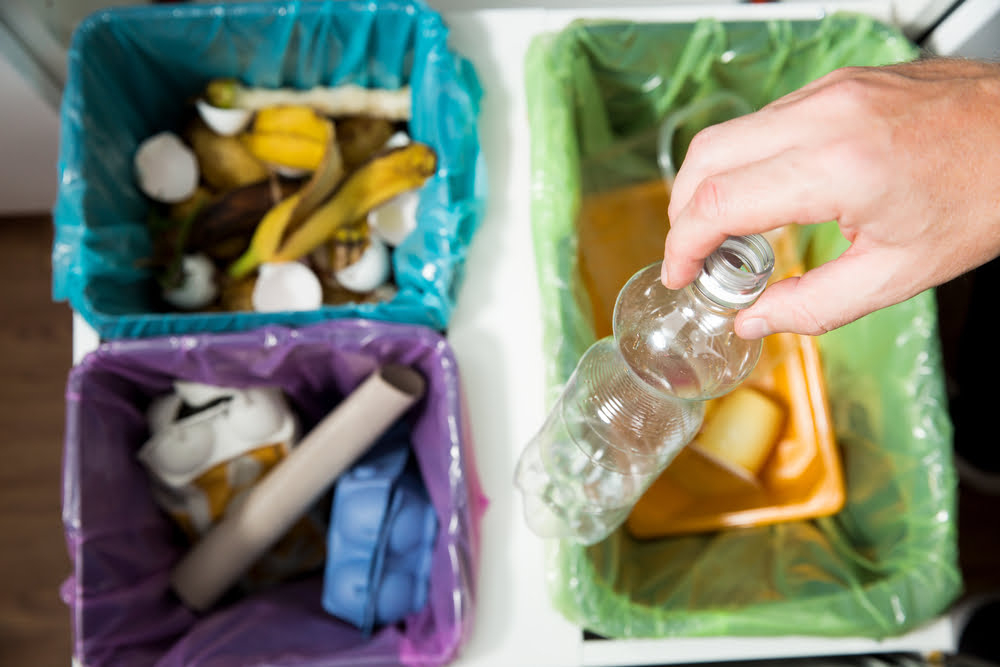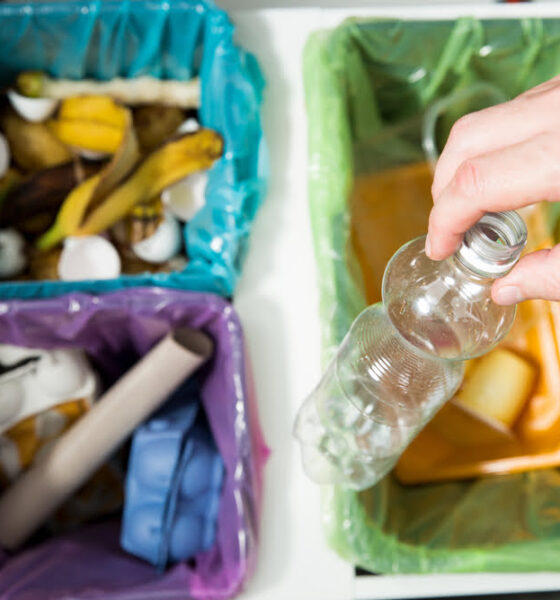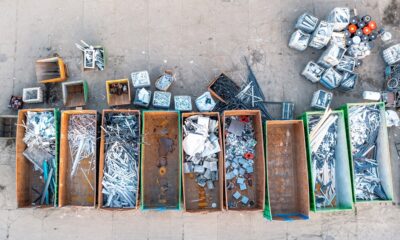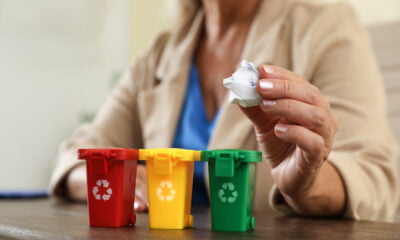

Environment
Tips for Optimal Waste Management in Your Home
People throughout the United Kingdom claim to be concerned about sustainability. One recent poll found that climate change is the second biggest concern in Britain. Thirty-two percent of Britons rated this as a huge concern. This is a 16 point increase from the previous poll and the highest rate reported since 1989.
Unlike many other countries, people in the UK actually practice what they preach. They are taking new measures to promote eco-friendly living.
They are willing to pay up to 10% more for eco-friendly products. They are also recycling much more than they used to.
The UK has a household recycling rate of just over 46% for the 222.2 million tonnes of waste it produces. This is a rate rising steadily for the last six years. In 2015, the UK’s recycling rate was only 44.5%, so the country is clearly making progress.
While the changes have been small, education among households leads to a rise in better recycling and reusing of household and garden waste, with more waste diverted from landfills.
But there is still more to do.
And that includes continuing education, so more people know how to reduce landfill waste and increase the amount of waste they recycle.
To help, here are some simple suggestions for how you can increase your recycling and waste management at home.
Separate your waste in recycling bags
Most councils now provide many household recycling bags to make it easier to separate food, plastic, and other mixed recycling – including green waste.
While it might seem a little overwhelming, it’s easy to understand what goes into a recycling bag or box, and once you’ve been doing it for a while, you’ll find it second nature to recycle your waste.
Compost
One of the easiest ways to reuse garden waste and old cardboard or paper is to start a compost box in the garden.
If you’re a keen gardener, it can save you a lot of money and reduce the amount of reusable waste you send to the landfill.
Don’t buy bottled water.
This isn’t just for bottled water; you should avoid as many plastic bottles as you can, or at least reuse any bottles you do buy.
Failing that, you can add plastic bottles to one of your council recycle bags to ensure they don’t end up in the landfill once you’ve used them.
Use reusable containers
Planning meals ahead of time is a great way to save some money, but if you’re planning to do this, it’s best to buy reusable containers that you can wash rather than throwing away.
These reusable containers are beneficial for anything you might want to store in the kitchen and save you from throwing tons of plastic containers away every week.
Avoid plastic packaging whenever you can
While plastic is easily recyclable today with council recycle bags, it’s still better to avoid any plastic packaging whenever you can.
This includes not picking up plastic bags when you go to the supermarket and getting reusable bags instead.
Donate unwanted items to charity shops
If you’ve got any old furniture, clothes, or electronics that you don’t use, consider donating them to charity shops rather than sending them to a landfill.
Old sofas will need to have their fire safety tags still attached, and the charity shop will need to be big enough to accept bulk items, but there are dedicated charity shops that can take more oversized furniture.
Use a dedicated waste removal service.
If you have a clear-out and don’t have the space to store a skip or wait weeks for a council bulk recycling collection, you can use a waste clearance and rubbish removal service to get your recyclable items to a center.
At LITTA, our waste clearance service has a 93% recycling rate for all the domestic and commercial waste we collect so you know your unwanted items will be dealt with in an environmentally friendly way.


 Environment12 months ago
Environment12 months agoAre Polymer Banknotes: an Eco-Friendly Trend or a Groundswell?

 Features11 months ago
Features11 months agoEco-Friendly Cryptocurrencies: Sustainable Investment Choices

 Features12 months ago
Features12 months agoEco-Friendly Crypto Traders Must Find the Right Exchange

 Energy11 months ago
Energy11 months agoThe Growing Role of Solar Panels in Ireland’s Energy Future




























